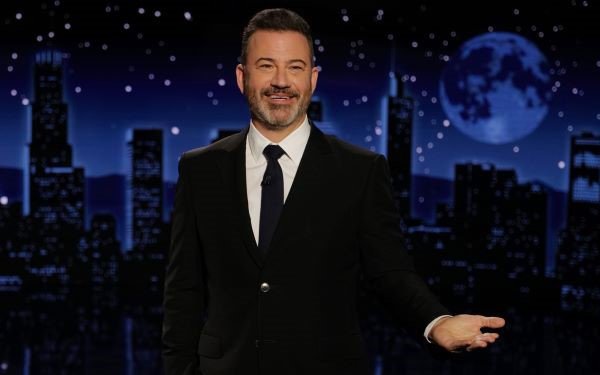
Former Congressman George Santos can't revive a
copyright infringement suit against Jimmy Kimmel and ABC over prank videos, a federal appellate court said Monday.
The ruling, issued by a three-judge panel of the 2nd Circuit
Court of Appeals in New York, upheld U.S. District Court Judge Denise Cote's ruling that Kimmel and ABC were protected from Santos's copyright claim by fair use principles.
The
ruling came in a battle dating to February 2024, when Santos sued Kimmel, ABC and Disney over Cameo videos featuring Santos reading preposterous messages that had been suggested by Kimmel.
The Cameo videos aired on Jimmy Kimmel Live in the segment, “Will Santos Say It,” and were also posted to YouTube. One clip showed Santos congratulating the fictional “Gary Fortuna,” who
supposedly had eaten almost six pounds of loose ground beef in under 30 minutes in order to win a contest.
advertisement
advertisement
“I know you're feeling a little under the weather, but I hear
from a great source that the doctor said that you'll be released from the hospital soon and recover well,” Santos says in the Cameo.
Santos joined the video platform
Cameo in late 2023, just days after he was expelled from Congress. The former House representative, who pleaded guilty to fraud and wire fraud and is currently serving a seven-year prison sentence,
charged $200 a video to deliver personalized messages through the platform.
Santos's complaint included claims that Kimmel and the TV network infringed copyright by airing the
Cameo videos.
Kimmel and the network urged Cote to dismiss the case at an early stage, arguing that the clips didn't infringe copyright because they were a
“quintessential example of a fair use."
The videos were shown “to mock and criticize Santos’ decision to immediately pivot from being expelled from Congress
for financial misconduct to a 'new gig' selling Cameo videos, in a manner that suggested he still had no shame about doing anything for money,” attorneys for Kimmel and ABC wrote.
Cote agreed with Kimmel and ABC, and threw out the lawsuit. She said in the opinion that a "reasonable observer" would understand that Kimmel showed the videos in order to comment
on Santos's willingness "to say absurd things for money."
"Thus," she wrote, "the videos were used for political commentary and criticism."
Santos then
appealed to the 2nd Circuit. Among other arguments, he contended
that the videos were not "transformative" -- which is one factor judges consider when deciding whether someone has made fair use of copyrighted material.
He argued that his
original purpose in making the Cameo videos was to say absurd things for money, and that Kimmel aired the videos for the same reason. Therefore, he argued, airing the videos on TV was not
transformative.
The appellate judges disagreed, with Circuit Judge Raymond Lohier writing that whether a use was transformative turns on what a reasonable observer would think
-- not on Kimmel's subjective intent. Circuit Judges Richard Sullivan and José Cabranes joined in the opinion.